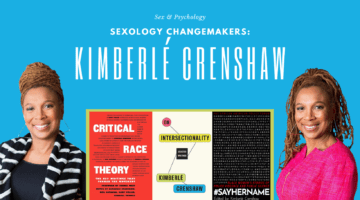Men And Women Have Different Sexual Regrets
May 15, 2019 by Justin Lehmiller
When asked to describe a memorable regret, the things people mention most often involve love, sex, and romance [1]. Common regrets include lost opportunities (like “the one that got away”), cheating and infidelity, and one’s first sexual experience. Men and women both report having sexual regrets, but do the nature of those regrets differ? Research suggests that, on average, they do.
In one study, college student participants were asked to evaluate hypothetical scenarios in which someone took advantage of an opportunity for casual sex that they later regretted, or someone passed on a similar opportunity and regretted it afterward [2]. Participants then rated how much regret they thought they would personally feel in those situations.
The results? Men reported significantly more anticipated regret for sexual inactions, whereas women reported significantly more regret for sexual actions. Put another way, men tended to regret the sex they didn’t have, whereas women tended to regret the sex they did have.
In a follow-up study, participants were given a list of common sexual regrets and asked to indicate which ones they had personally experienced. Consistent with the previous study, women reported more action regrets and men reported more inaction regrets. Of the 39 sexual action regrets researchers inquired about, none were more common among men; of the 30 sexual inaction regrets in this study, just one was more common among women.
For women, the most common action regrets were (in order): having their first sexual experience with the “wrong” person, cheating on a partner, and jumping into bed “too fast.” For men, the most common inaction regrets were (in order): not telling someone they were attractive, not being sexually adventurous at a young age, and not being more sexually adventurous while they were single.
In a third study that included gay, lesbian, and bisexual participants, the main finding that women tended to regret actions and men tended to regret inactions emerged again. This held regardless of participants’ sexuality. In other words, lesbian, bisexual, and heterosexual women were more likely to regret previous actions, whereas gay, bisexual, and heterosexual men were more likely to regret previous inactions.
These findings tell us that sexual regrets are a common occurrence for men and women across sexual orientations, but that the nature of these regrets differs across gender. So what’s the explanation for this gender difference?
We can’t say for sure, but the researchers who conducted these studies believe they are consistent with evolutionary theory. The main idea is that there are different “reproductive fitness” costs associated with sexual action/inaction for men and women. Due to the greater parental investment required to produce a child, they argue that, for instance, women would be more likely to regret casual sex that did not turn into a relationship, while men would be more likely to regret spending time in a committed relationship where there was little to no sex. In both of these scenarios, there are theoretical reproductive costs (e.g., getting pregnant by a man who doesn’t stick around, missing out on opportunities to pass along one’s genes).
Of course, this isn’t the only way to interpret these findings. Alternatively, it may be that women feel pressure to regret sexual actions because there is a societal expectation that women should not have casual sex or enjoy it. Consistent with this idea, across the three studies, men tended to evaluate sexual actions and inactions pretty similarly, meaning they reported roughly equivalent levels of regret in each case. By contrast, women evaluated action vs. inaction regrets differently, indicating high levels of regret for actions and low levels of regret for inactions. This pattern of results suggests the possibility that women might just be thinking more about the social consequences of their sexual behaviors than men.
Consistent with this idea, other research has found that women are more likely than men to worry about the implications for their reputation after having casual sex [3]. It’s also worth noting that women are more likely than men to report less-than-satisfying casual sex experiences, so differences in sexual pleasure experienced may be part of this story, too.
Want to learn more about Sex and Psychology ? Click here for previous articles or follow the blog on Facebook (facebook.com/psychologyofsex), Twitter (@JustinLehmiller), or Reddit (reddit.com/r/psychologyofsex) to receive updates. You can also follow Dr. Lehmiller on YouTube and Instagram.
[1] Morrison, M., Epstude, K., & Roese, N. J. (2012). Life regrets and the need to belong. Social Psychological and Personality Science, 3, 675-681. doi:10.1177/1948550611435137
[2] Galperin, A., Haselton, M. G., Frederick, D. A., Poore, J., von Hippel, W., Buss, D. M., & Gonzaga, G. C. (2013). Sexual regret: Evidence for evolved sex differences. Archives of Sexual Behavior, 42(7), 1145-1161. doi: 10.1007/s10508-012-0019-3
[3] Kennair, L. E. O., Wyckoff, J. P., Asao, K., Buss, D. M., & Bendixen, M. (2018). Why do women regret casual sex more than men do?. Personality and Individual Differences, 127, 61-67.
Image Source: Photo by Anthony Tran on Unsplash
You Might Also Like:

Dr. Justin Lehmiller
Founder & Owner of Sex and PsychologyDr. Justin Lehmiller is a social psychologist and Research Fellow at The Kinsey Institute. He runs the Sex and Psychology blog and podcast and is author of the popular book Tell Me What You Want. Dr. Lehmiller is an award-winning educator, and a prolific researcher who has published more than 50 academic works.
Read full bio >


